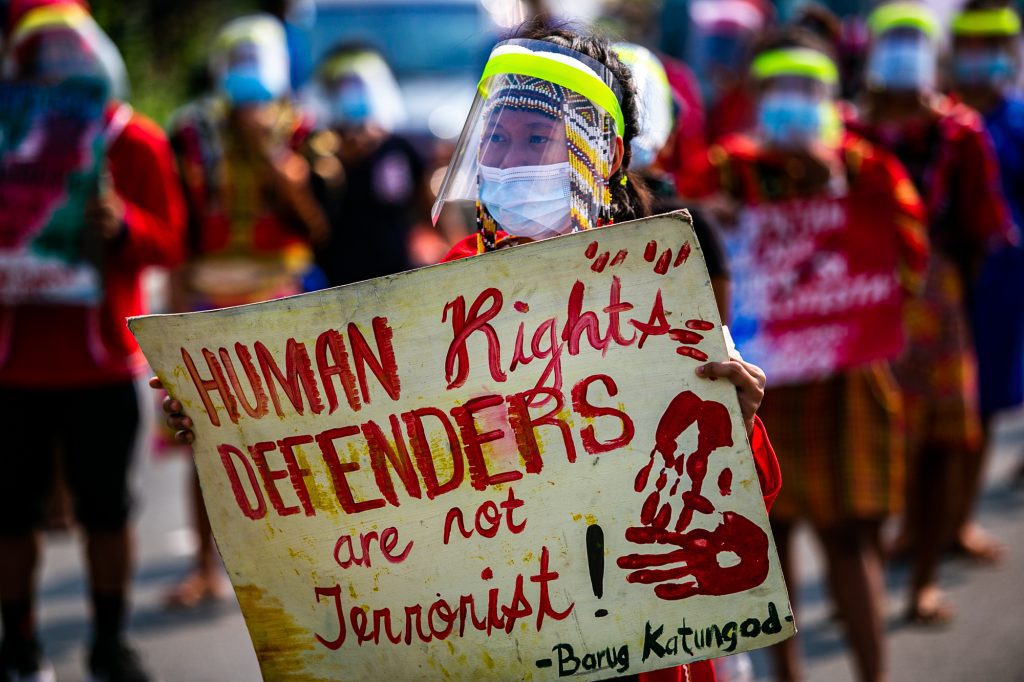The Philippines ranked third in the world’s deadliest country for land and environmental defenders, according to the latest Global Witness report.
The report titled “The Last Line of Defence,” named the country as the worst in Asia as it documented a total of 29 killings of environmental activists in the country in 2020.
A total of 227 land and environmental defenders were killed last year, the deadliest year on record. Colombia has the highest number of killings with 65 and Mexico with 30 deaths.
The report said more than 50 percent of the lethal attacks against Filipino activists “were directly linked to defenders’ opposition to mining, logging, and dam projects.”
“Opposition to damaging industries is often met with violent crackdowns from the police and military,” said the report.
It said that during the President Rodrigo Duterte administration, “a dramatic increase in violence against defenders” has been recorded.
“From his election in 2016 until the end of 2020, 166 land and environment defenders have been killed – a shocking increase for a country which was already a dangerous place to stand up for the environment,” the report said.
It added that the worst killings on record occurred in the country when nine indigenous Tumandok tribe leaders and members were massacred on December 30, 2020.

Rodne Galicha of Living Laudato Si Philippines said the state of the environment “deteriorates along with its defenders.”
“For a country that is rich in natural resources, it is not only disturbing but embarrassing that the culture of impunity dominates the land,” he said.
The group Alyansa Tigil Mina said it is more worrisome that the killings are “directly related to the protection” of forests and natural resources of local and indigenous communities.
“At this time of climate change impacts, the protection of environmental defenders and the remaining forests must be upheld,” said Jaybee Garganera, the group’s national coordinator.
He said the shrinking space for activism in the country is a “result of the repressive laws and policies ushered in by the Duterte administration.”
Garganera accused the government of using the COVID-19 pandemic “as an excuse to justify” the return and expansion of destructive extractive projects.
He also criticized the implementation of the Anti-Terrorism Act and the National Task Force to End Local Communist Armed Conflict or NTF-ELCAC, which he said has been red-tagging and harassing local activists.

Leon Dulce of Kalikasan People’s Network for the Environment (PNE) said the recent report demonstrates that the murder of environmental defenders “doubled under the Duterte government compared to its predecessor.”
“We clearly need a new leadership that will protect our nature’s front liners and stops destructive projects that aggravate our country’s ecological, climate, and human rights crises,” he said.
Global Witness said governments have been all “too willing to turn a blind eye and fail in providing their core mandate of upholding and protecting human rights.”
It said States are failing to protect land and environmental defenders, in many cases directly perpetrating violence against them, and in others complicit with business.
“There is a clear link between the availability of civic space and attacks against defenders – the most open and tolerant societies see very few attacks, whereas, in restricted societies, attacks are much more frequent,” the report read.
Global Witness urged governments to enact laws that will “hold corporations accountable for their actions and profits.”
It also called on the United Nations to “formally recognize the human right to a safe, healthy, and sustainable environment.”






0 Comments